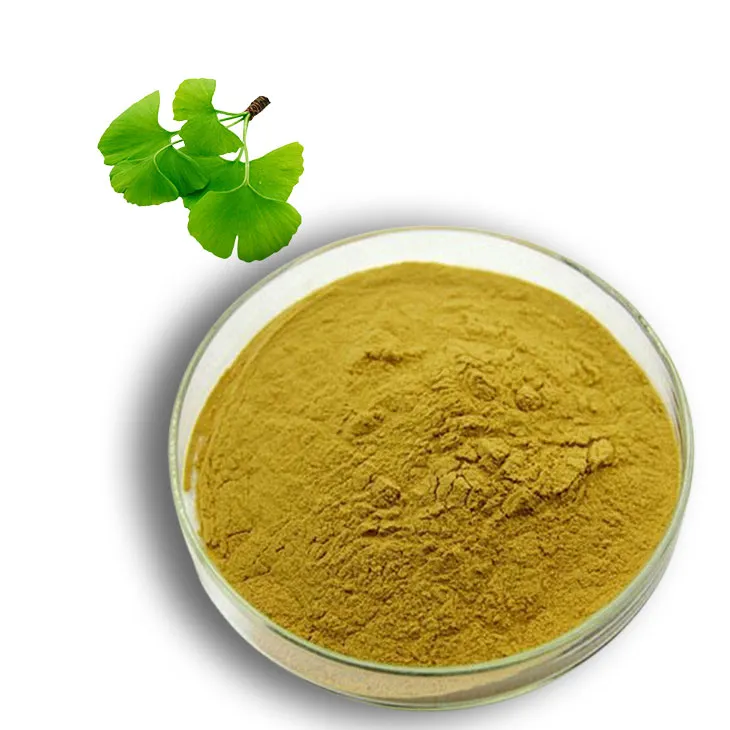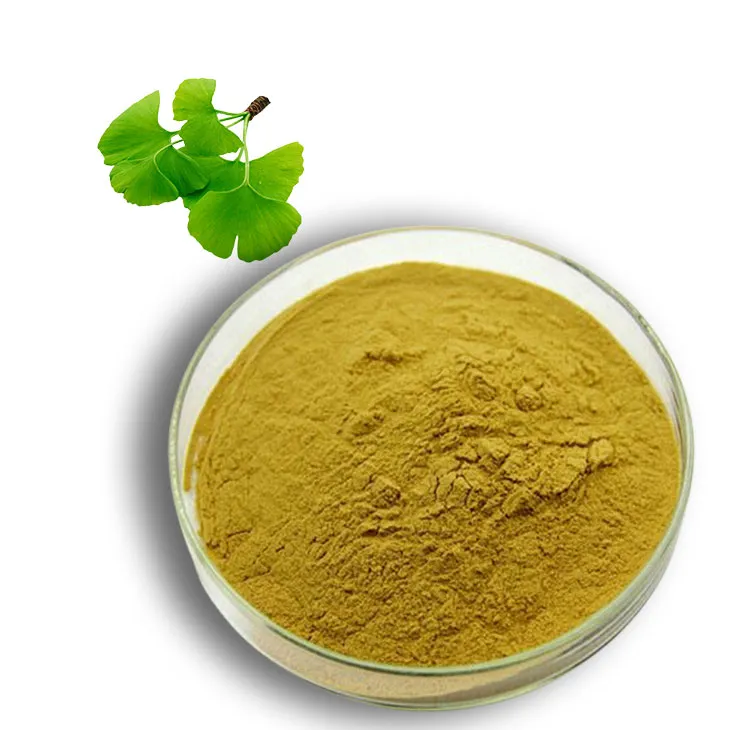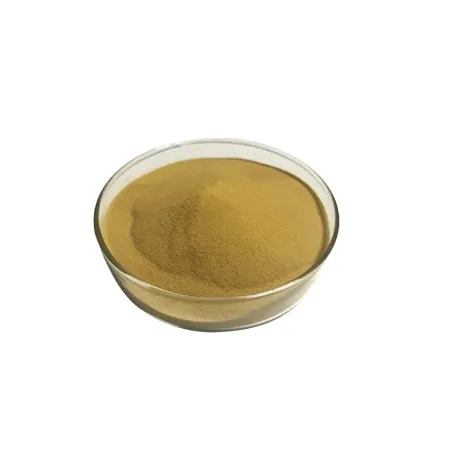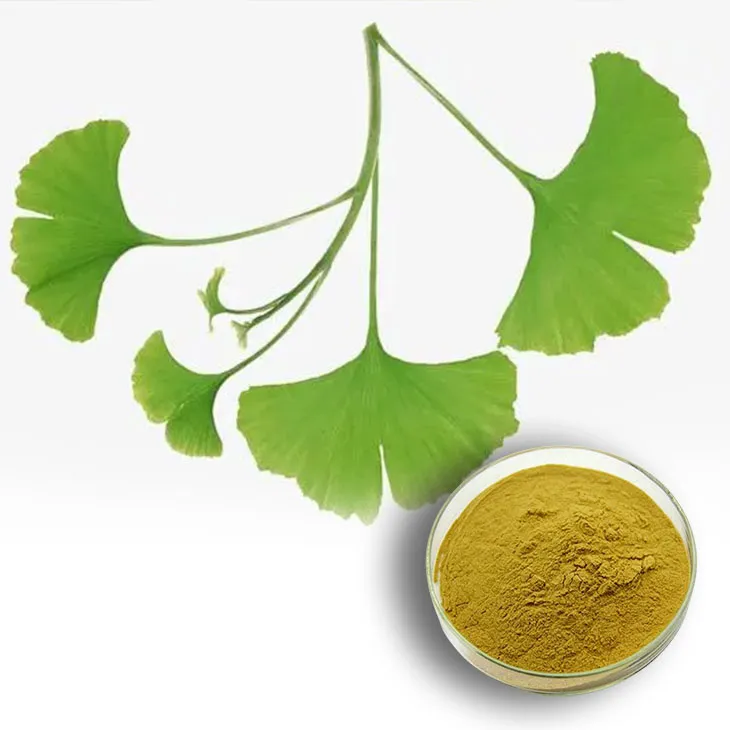- 0086-571-85302990
- sales@greenskybio.com
Ginkgo biloba extract manufacturers.
2024-12-01

1. Introduction
Ginkgo biloba extract manufacturers play a crucial role in the production and distribution of products based on this remarkable plant. Ginkgo biloba, often referred to as a "living fossil," has been used in traditional medicine for centuries. In modern times, it has gained significant attention due to its potential health benefits, which include antioxidant, anti - inflammatory, and cognitive - enhancing properties. Manufacturers are thus responsible for transforming the raw material - ginkgo leaves - into a high - quality extract that can be used in various products such as dietary supplements, pharmaceuticals, and cosmetics.

2. Sourcing of Ginkgo Leaves
A. Global Sourcing
- Manufacturers need to ensure a reliable supply of ginkgo leaves. This often involves establishing relationships with ginkgo plantations around the world. Ginkgo trees are native to China, but they are also cultivated in other parts of the world, such as the United States and Europe.
- Some manufacturers may prefer to source directly from large - scale plantations to ensure consistent quality and quantity. Others may work with smaller farmers or cooperatives, which can provide unique varieties or more sustainable sourcing options.
- Before the leaves are harvested, quality control measures should be in place. This includes ensuring that the trees are healthy and free from diseases or pests that could affect the quality of the leaves.
- The time of harvest is also crucial. Ginkgo leaves are typically harvested in the fall when the active compounds in the leaves are at their peak concentration.

3. The Extraction Process
A. Equipment and Technology
- Modern manufacturers utilize state - of - the - art equipment for the extraction process. This includes advanced extraction machines such as supercritical fluid extractors or high - performance liquid chromatography (HPLC) systems.
- These technologies allow for precise extraction of the beneficial components from the ginkgo leaves. For example, supercritical fluid extraction uses carbon dioxide under specific pressure and temperature conditions to extract the active compounds without leaving behind harmful residues.
- A deep understanding of the chemical composition of Ginkgo biloba is essential for successful extraction. The main active components in ginkgo biloba include flavonoids and terpenoids.
- Manufacturers need to be able to target these specific components during the extraction process to ensure the final extract has the desired pharmacological properties.
- Throughout the extraction process, strict quality assurance procedures are followed. This includes regular monitoring of the extraction parameters such as temperature, pressure, and solvent ratios.
- Quality control tests are also carried out on the intermediate and final products to ensure that they meet the required standards for purity, potency, and safety.

4. Research and Development
A. Improving Extraction Efficiency
- Manufacturers are constantly striving to improve the extraction efficiency. This can involve researching new extraction techniques or optimizing existing ones.
- For example, they may explore ways to reduce the extraction time while maintaining or increasing the yield of the active components.
- Another aspect of research and development is enhancing the quality of the ginkgo biloba extract. This can be achieved through purification processes to remove impurities and increase the concentration of the active ingredients.
- Manufacturers may also investigate methods to improve the stability of the extract, such as through encapsulation or formulation with appropriate additives.
- Research in the field of ginkgo biloba extract is not limited to improving extraction and quality. Manufacturers are also interested in discovering new applications for the extract.
- For instance, they may study its potential use in treating new medical conditions or its effectiveness in the field of cosmeceuticals for skin health.

5. Packaging of Ginkgo biloba Extract
A. Selecting Packaging Materials
- Packaging is a crucial aspect of the manufacturing process. Manufacturers need to choose appropriate packaging materials to preserve the stability and freshness of the ginkgo biloba extract.
- For liquid extracts, amber - colored glass bottles are often preferred as they can protect the extract from light - induced degradation. For dry extracts, moisture - proof and air - tight packaging such as foil - lined pouches or capsules are commonly used.
- Accurate and compliant labeling is also essential. Labels should include information such as the product name, the amount of ginkgo biloba extract per serving, the recommended dosage, and any warnings or precautions.
- Manufacturers must also ensure that their labeling complies with relevant regulatory requirements in different markets.
6. Marketing of Ginkgo biloba Extract
A. Promoting to Consumers
- Manufacturers engage in marketing their products to consumers. They need to effectively communicate the unique properties of ginkgo biloba extract, such as its potential health benefits.
- Marketing strategies may include advertising through various media channels, such as television, print, and online platforms. They may also use social media influencers or bloggers to promote their products.
- In addition to consumers, manufacturers also target the healthcare industry. This includes promoting their products to doctors, pharmacists, and other healthcare professionals.
- They may provide scientific evidence of the efficacy and safety of their ginkgo biloba extract products to gain acceptance in the medical community. This can involve sponsoring research studies or presenting at medical conferences.
7. Regulatory Compliance
A. Regulatory Requirements in Different Countries
- Manufacturers of ginkgo biloba extract must comply with regulatory requirements in different countries. In the United States, for example, dietary supplements are regulated under the Dietary Supplement Health and Education Act (DSHEA).
- In the European Union, ginkgo biloba extract products are subject to the regulations of the European Medicines Agency (EMA) if they are intended for medicinal use, and to food safety regulations if they are considered as food supplements.
- Meeting quality and safety standards is non - negotiable. Manufacturers need to ensure that their products are free from contaminants, such as heavy metals, pesticides, and microbial pathogens.
- They must also conduct stability studies to demonstrate that their products maintain their potency and quality over their shelf - life.
8. Conclusion
Manufacturers of ginkgo biloba extract are involved in a complex and multi - faceted process. From sourcing the ginkgo leaves to marketing the final extract, they play a vital role in bringing the potential health benefits of ginkgo biloba to consumers. With continuous research and development, strict regulatory compliance, and effective marketing strategies, these manufacturers can contribute to the growth and success of the ginkgo - based product market.
FAQ:
What are the main tasks of ginkgo biloba extract manufacturers?
Manufacturers of ginkgo biloba extract have several main tasks. Firstly, they need to secure a reliable supply of ginkgo leaves, often by building relationships with ginkgo plantations globally. Then, they use advanced equipment to extract the beneficial components from the leaves, which demands technical knowledge and an understanding of the plant's chemical composition. They are also involved in R & D to improve extraction efficiency and quality. Additionally, choosing suitable packaging materials to maintain the extract's stability and freshness is important. Finally, they market their products, promoting the unique features of the ginkgo biloba extract to consumers and the healthcare industry.
How do ginkgo biloba extract manufacturers obtain ginkgo leaves?
Ginkgo biloba extract manufacturers usually obtain ginkgo leaves by establishing connections with ginkgo plantations around the world. These plantations are the primary source of the raw material (ginkgo leaves) for the extraction process.
What is required for the extraction process by ginkgo biloba extract manufacturers?
For the extraction process, ginkgo biloba extract manufacturers require state - of - the - art equipment. They also need technical expertise and a profound understanding of the chemical composition of ginkgo biloba. This combination allows them to precisely extract the beneficial components from the ginkgo leaves.
Why is research and development important for ginkgo biloba extract manufacturers?
Research and development is crucial for ginkgo biloba extract manufacturers. It enables them to enhance the extraction efficiency, which can lead to better productivity. Moreover, it helps in improving the quality of the extract, ensuring that it contains the most beneficial components and meets the highest standards for potential health benefits.
How do ginkgo biloba extract manufacturers ensure the quality of their products?
Ginkgo biloba extract manufacturers ensure the quality of their products in several ways. They start with a reliable source of ginkgo leaves. During the extraction process, they use advanced technology and their knowledge of the chemical composition. Their research and development efforts also contribute to quality improvement. Additionally, they choose appropriate packaging materials to preserve the stability and freshness of the extract.
Related literature
- The Production and Quality Control of Ginkgo biloba Extract"
- "Ginkgo biloba Extract: Manufacturing Processes and Health Applications"
- "Advances in Ginkgo biloba Extract Manufacturing"
- ▶ Hesperidin
- ▶ Citrus Bioflavonoids
- ▶ Plant Extract
- ▶ lycopene
- ▶ Diosmin
- ▶ Grape seed extract
- ▶ Sea buckthorn Juice Powder
- ▶ Fruit Juice Powder
- ▶ Hops Extract
- ▶ Artichoke Extract
- ▶ Mushroom extract
- ▶ Astaxanthin
- ▶ Green Tea Extract
- ▶ Curcumin
- ▶ Horse Chestnut Extract
- ▶ Other Product
- ▶ Boswellia Serrata Extract
- ▶ Resveratrol
- ▶ Marigold Extract
- ▶ Grape Leaf Extract
- ▶ New Product
- ▶ Aminolevulinic acid
- ▶ Cranberry Extract
- ▶ Red Yeast Rice
- ▶ Red Wine Extract
-
Hawthorn Extract
2024-12-01
-
Mulberry leaf Extract
2024-12-01
-
Moringa powder
2024-12-01
-
Resveratrol extract
2024-12-01
-
Polygonum multiflorum extract
2024-12-01
-
Grape Leaf Extract
2024-12-01
-
Milk Thistle Extract
2024-12-01
-
Withania Somnifera Extract
2024-12-01
-
Chia Seed Powder
2024-12-01
-
Phellodendron Extract
2024-12-01





















